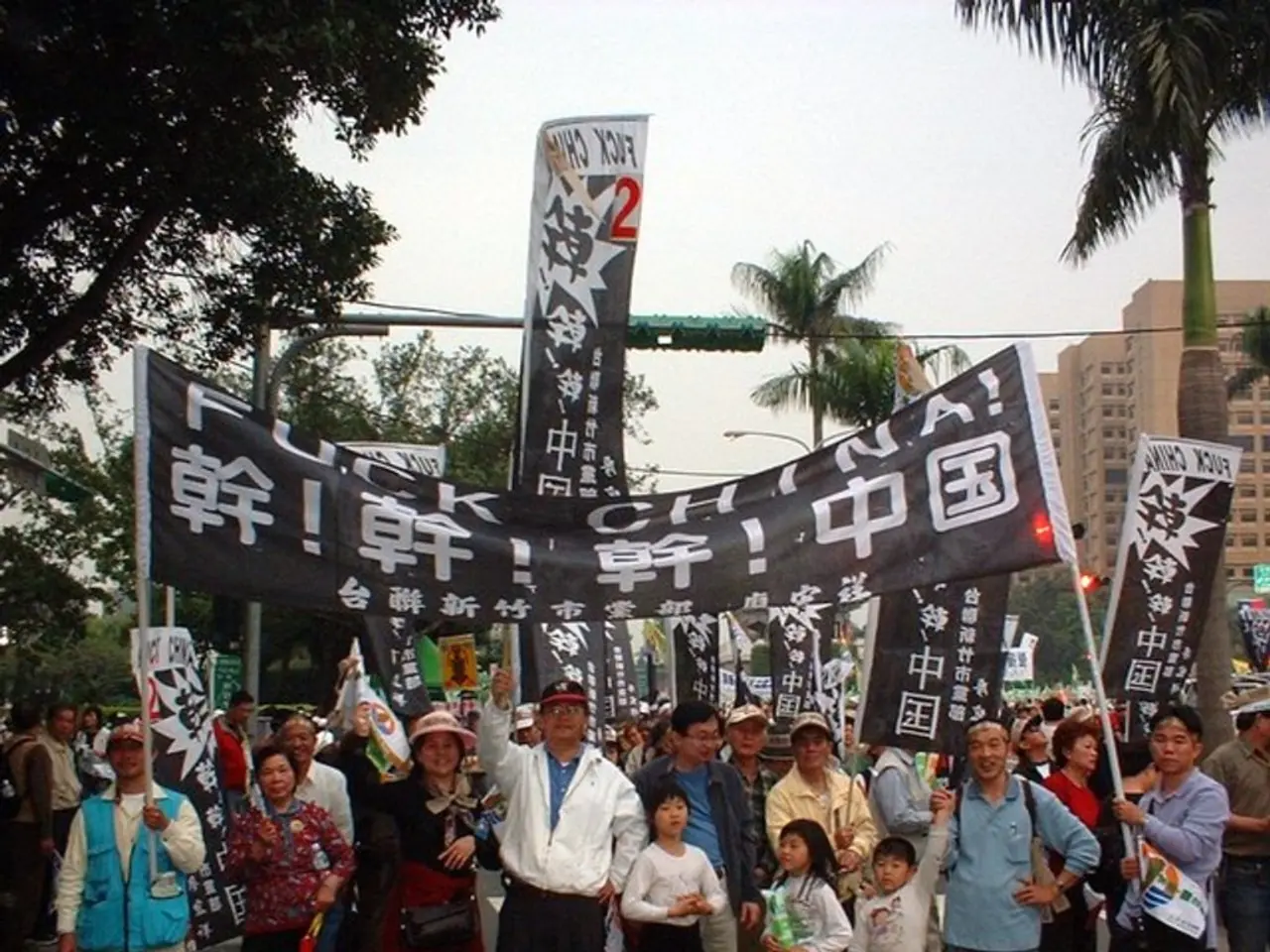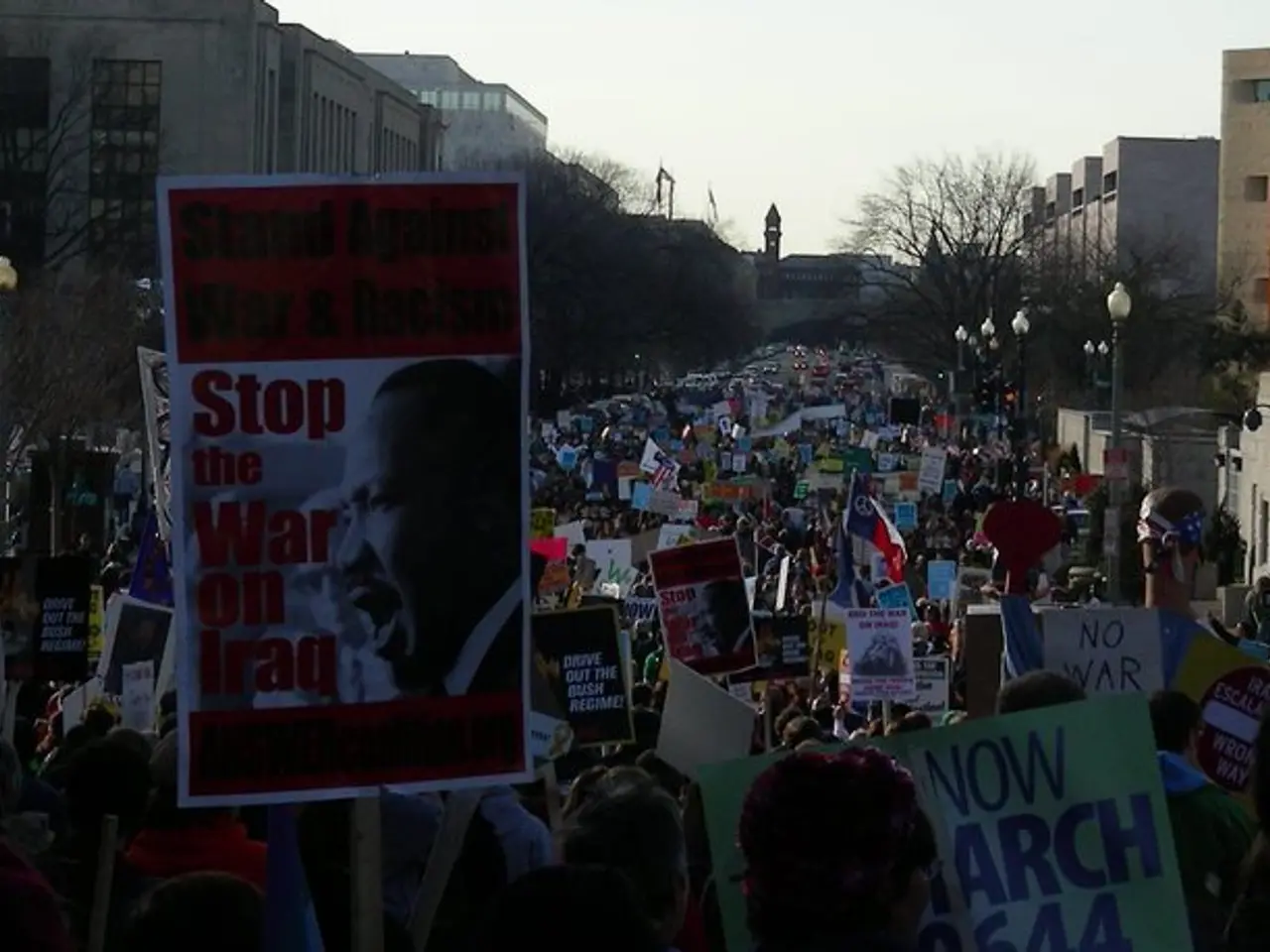Phone call turmoil: Thailand's PM Paetongtarn Shinawatra seeks to salvage coalition with apology
Thailand's coalition-saving Prime Minister, Paetongtarn Shinawatra, extends an apology.
In the midst of a potential government collapse, Thailand's Prime Minister Paetongtarn Shinawatra extends an olive branch in the form of an apology. A contentious call with Cambodian officials has ignited a storm, pushing one of her coalition partners toward the exit, instigating demands for fresh elections.
Paetongtarn expresses regret for the public conversation with the Cambodian official, acknowledging the public's dissatisfaction. The call with former Cambodian Prime Minister Hun Sen, who held office until 2023 and maintains considerable influence in the country, focused principally on the ongoing border dispute between the countries. During the conversation, she affectionately addressed Hun Sen as "uncle," and referred to a high-ranking Thai regional army commander entangled in the border debate as a rival. These comments garnered harsh criticism across digital platforms.
The Bhumjaithai Party announced its departure from the government on Wednesday, attributing Paetongtarn's actions to an affront against the nation and military. If another coalition partner follows suit, Paetongtarn would forfeit her majority, leading to the prospect of fresh elections or the creation of a new coalition.
The Military's Takedown of Father and Aunt
Thailand's political turmoil, marked by coups, street protests, and decisive court judgements, has been a two-decade saga. The enduring power struggle between the military and the royalist faction, against progressive parties and the Shinawatra family, who once ruled the nation, largely contributes to this instability.
Paetongtarn, despite being Thailand's youngest prime minister, managed to survive a no-confidence vote in parliament in late March. Charges included incompetence, lack of economic understanding, tax evasion, and adhering to her influential father, Thaksin Shinawatra, who held office from 2001 to 2006. The 38-year-old denies all the allegations, insisting she is dedicated to the nation and should be evaluated based on her performance, rather than her family ties.
Her aunt, Yingluck Shinawatra, was ordered to pay a compensation of more than 265 million euros in late May over a controversial rice subsidy scheme. This marked the culmination of a lengthy process involving the distribution of agricultural subsidies for rice. Yingluck received a five-year prison sentence in absentia in 2017 and has been living in exile since she fled the nation. Yingluck became prime minister in 2011 and was ousted by the military in 2014. Her brother faced a military coup in 2006.
Sources: ntv.de, jwu/AFP/rts
[1] Strife in Thailand: Power struggles and political instability that spans two decades[2] The Shinawatra family: A controversial legacy in Thai politics marked by coups and regime changes
- The employment policy within the Thai government could be reevaluated in light of the current political turmoil and the potential consequences of the coalition's collapse.
- The ongoing border dispute between Thailand and Cambodia is a critical issue that requires thoughtful policy-and-legislation, especially when discussed in high-level conversations like the one between Paetongtarn Shinawatra and Hun Sen.
- Migration patterns within Thailand might fluctuate if fresh elections are held due to the current political instability, particularly if the Bhumjaithai Party continues to push for them.
- Crime-and-justice agencies may face a surge in cases related to car-accidents and fires during times of political upheaval due to increased tension and stress on the populace.
- General-news media outlets are closely monitoring the political developments in Thailand, providing updates on the situation's progression and its potential impact on various policy areas, such as car-accidents, fires, and war-and-conflicts.








